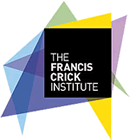This 4-year PhD studentship is offered in Dr Naomi Moris’ Group based at the Francis Crick Institute (the Crick).
Studying the development of the human embryo poses technical and ethical challenges that have limited our understanding of human development. This is especially true for the gastrulation stage, where the organisation of the body plan is established and when it is thought that certain birth defects, or congenital abnormalities, arise. Embryonic stem cells (ESCs) can be used to model various aspects of mammalian development, including the coordination of cell fate using new 3D ‘organoid’-like systems, called gastruloids [1, 2].
This project will make use of a new human gastruloid system [3] to investigate: (a) the emergence of different cell types and their spatiotemporal coordination in three-dimensional human gastruloids; (b) the relevance of this in vitro system to the development of the mammalian embryo in vivo; and (c) the possibilities for using human gastruloids as disease models of various congenital abnormalities with medical relevance. The precise details of the project will be decided on in consultation with the supervisor and the rest of the team.
The role will involve culturing human ESCs to generate gastruloids and using techniques such as confocal microscopy, single cell RNA-sequencing, live-imaging and genetic engineering. Training in molecular biology, cell biology, microscopy and bioinformatics will be provided.
Candidate background
This project would suit candidates from a biological / biochemical background with a keen interest in developmental biology and in the fundamental principles of embryo development.
Experience of human Embryonic Stem Cell (ESC) / iPSC culture would be advantageous, but is not a prerequisite.
Talented and motivated students passionate about doing research are invited to apply for this PhD position. The successful applicant will join the Crick PhD Programme in September 2021 and will register for their PhD at one of the Crick partner universities (Imperial College London, King’s College London or UCL).
Applicants should hold or expect to gain a first/upper second-class honours degree or equivalent in a relevant subject and have appropriate research experience as part of, or outside of, a university degree course and/or a Masters degree in a relevant subject.
APPLICATIONS MUST BE MADE ONLINE VIA OUR WEBSITE https://www.crick.ac.uk/careers-and-study/students/phd-students BY 12:00 (NOON) 23 March 2021. APPLICATIONS WILL NOT BE ACCEPTED IN ANY OTHER FORMAT.

 Continue with Facebook
Continue with Facebook



